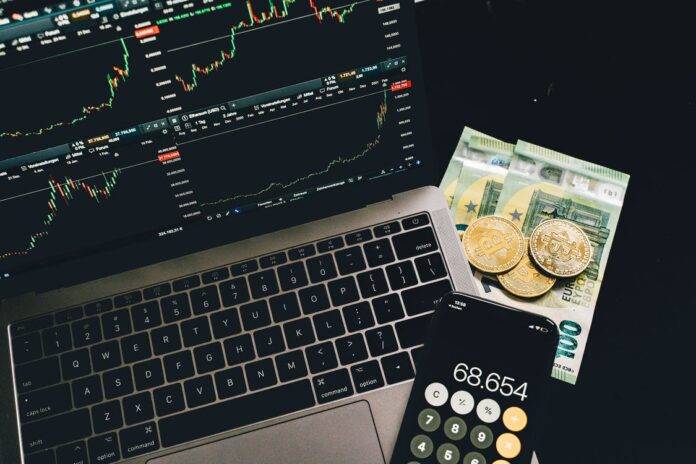But the reality of this situation is only based on paper. Actual wealth can’t be gained unless the asset is sold, and profit is realized. The excitement of watching possible ownership in increase to never-before-seen highs can be appealing, but the potential of losing that gain in the short term is a very real possibility, and that affects all cryptocurrency holders.
In the game of Monopoly, the winner is determined by the amount of cash a player has, not the assets. This is an all-too-common scenario for investors who find themselves asset-rich, but cash-poor. And when it comes to these assets, the risks should not be ignored.
Previous gains have been met with even steeper falls. How can an investor, rich in cryptocurrency assets, reduce the potential for volatility in their portfolio? One answer can be found through income-producing commercial real estate.
Like many industries, real estate has been able to find ways to tokenize investments. The global real estate market is over US$200 trillion and represents the largest asset class in the world, according to Savills World Research. Even more importantly, it offers stability.
A more stable path for building wealth
While cryptocurrency valuations historically see massive ebbs and flows, comparatively, the evolution of commercial real estate value tends to be remarkably stable month to month, even during Covid, with an overall uptrend over a long period. Therefore, now is an incredibly advantageous time to diversify one’s digital assets portfolio into something that can hold up even as cryptocurrencies experience wild swings. In this way, the volatility of the entire portfolio is dampened versus one in which 100% has been allocated to cryptocurrency.
Traditionally, accessibility and liquidity have been the largest hurdles when investing in commercial real estate. Access to high-quality assets has been limited to high-profile investors, while deals in progress are often held up by too many cooks in the kitchen. Tokenization has eliminated all of this.
Through tokenization, the hassles of investing in commercial real estate on a blockchain can facilitate secondary market sales through online quotation bureaus. It’s not hard to envision a scenario where real estate can be traded like stocks.
Reducing risks through hard assets
Business models have emerged that are similar to a traditional bank, where interest rates are being charged for altcoin loans and the amount paid on the interest of altcoin deposits. But those models are going further than the norms by providing preferred rates for depositors if they agree to earn and collect their interest income with the firm’s native utility token, allowing for more attractive borrowing rates.
For those who are looking at these novel banking opportunities, it may appear to be a fantastic deal, but there are vulnerabilities. Like credit spending is to cash, tokens have little intrinsic value and are simply a function of money flows driven by borrowing and lending volumes. And it’s all being serviced at the discretion of the lender. It’s possible that outside factors can devalue the cost of the token or reduce that attractive rate.
But what if those same intermediaries invested a portion of their capital in commercial real estate-backed digital tokens? They’ll have a hard asset that provides some floor value to the utility token. And because commercial real estate generates income, the crypto intermediary can use the income and reward their utility token holders with a dividend.
As bitcoin continues to appreciate, real estate strategies will become significantly more advantageous in yielding higher overall investment results. Furthermore, the trading capability of digital securities adds to the attractiveness over analogous partnerships. Tokenization of real estate creates more financial opportunities and a more efficient platform for investors to obtain access and take advantage of commercial real estate investments.
Blockchain commercial real estate through tokenization is making capital market opportunities more accessible, affordable and productive for property owners seeking to raise capital. Real estate has always provided significant tax advantages historically and has produced consistent returns for investors holding long term. The future for investment in commercial real estate is looking extremely exciting as blockchain technology, cryptocurrency and decentralized finance (DeFi) expand their capabilities to enhance practical solutions for the industry.


















